Dyslipidemia
How to submit an article:
- Registered users can submit any published journal article that has a unique DOI (Digital Object Identifier) name or link to Research Hub.
- For example, you can paste the full DOI link:
https://doi.org/10.1109/5.771073or just the DOI name:10.1109/5.771073into the field above and click submit. - The person who is first to submit a valid article to Research Hub will forever be credited for it, and every article submission earns you +6 Research Points.
Related Topics
Published research studies are articles that present the findings of original research that has undergone a peer-review process and has been made publicly available in scholarly journals, books or other media.
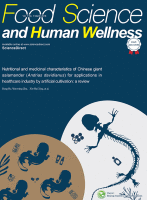
Polyphenols and pectin enriched golden kiwifruit (Actinidia chinensis) alleviates high fructose-induced glucolipid disorders and hepatic oxidative damage in rats: in association with improvement of fatty acids metabolism
2023 Sep Food Science and Human Wellness Alim A, Li T, Nisar T, Ali Z, Ren D, Liu Y, et al.
Overall, fleshes with pericarps from two A. chinensis (ACFP) employs more efficacious protective effects against HF-induced metabolic disorders and liver damage than pericarps from two A. chinensis (ACP) and pericarps from two A. chinensis (ACP).
Animal Study High Fructose Corn Syrup Kiwifruit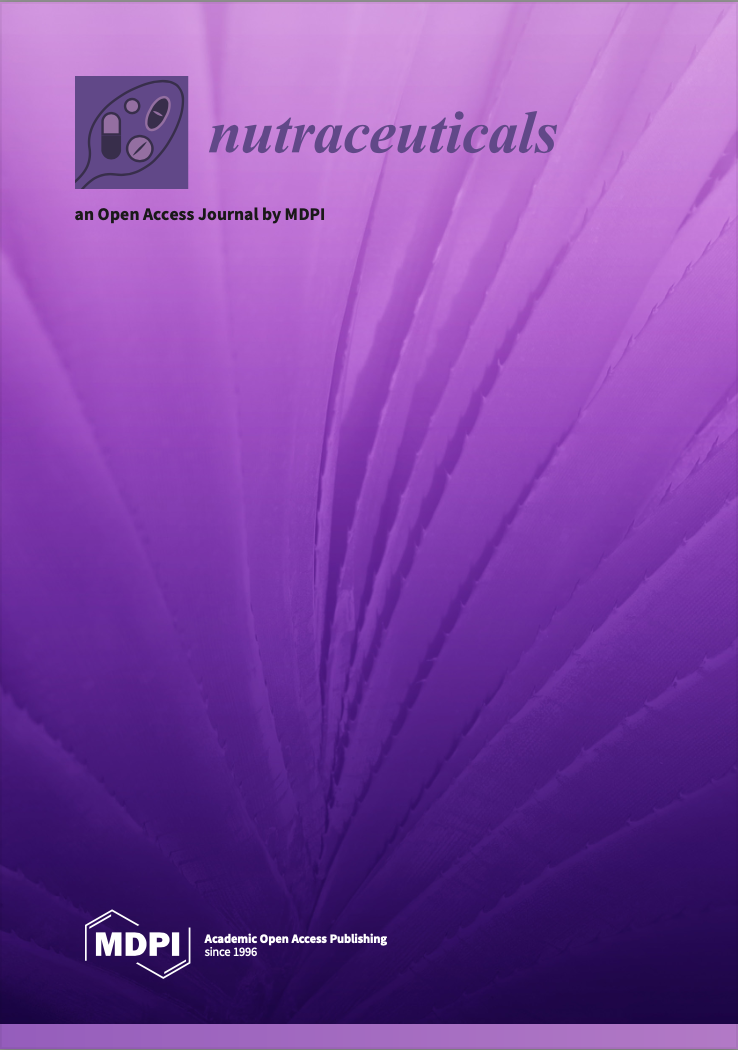
Arctium lappa Lam. and Its Related Lignans Improve Hyperglycemia and Dyslipidemia in Diabetic Rodent Models: A Systematic Review and Meta-Analysis
2022 Nov 11 Nutraceuticals Watanabe S, Yamabe S, Shimada M
Animal Study Systematic Review Meta-AnalysisA. lappa (burdock root) benefits diabetic rodents by reducing blood glucose and improving lipids, but human effects are uncertain
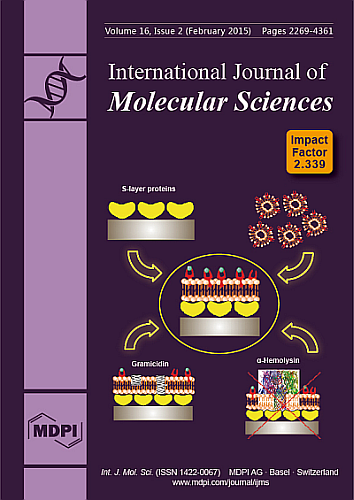
Comparison of the Chemical Components, Efficacy and Mechanisms of Action of Chrysanthemum morifolium Flower and Its Wild Relative Chrysanthemum indicum Flower against Liver-Fire Hyperactivity Syndrome of Hypertension via Integrative Analyses
2022 Nov 09 International Journal of Molecular Sciences Wang Y, Li Y, Guo W, Yang X, Qu J, Gao M, et al.
Network Pharmacology Chrysanthemum High Blood Pressure Liver Heat SyndromeTwo varieties of chrysanthemum have similar therapeutic effects but operate through distinct mechanisms, revealing potential for precise applications in both traditional and modern medicine.
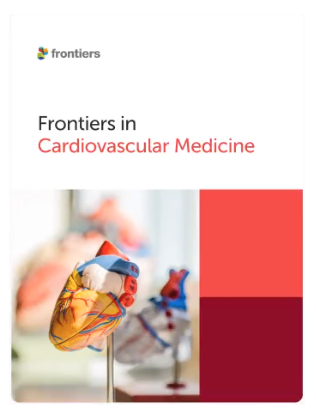
Effects and safety of Chinese herbal medicine on inflammatory biomarkers in cardiovascular diseases: A systematic review and meta-analysis of randomized controlled trials
2022 Aug 16 Frontiers in Cardiovascular Medicine Li M, Zhou IW, Trevillyan J, Hearps AC, Zhang AL, Jaworowski A
Systematic Review Meta-Analysis Cardiovascular Disease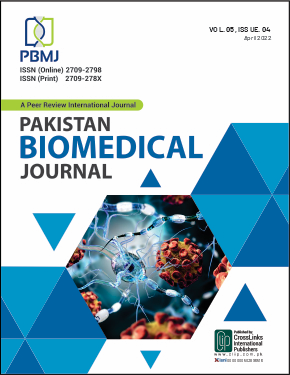
Hypolipidemic effect of Sesame Seed Oil: A Review
2022 Apr 30 Pakistan BioMedical Journal Arshad M, Ashfaq M, Rizwan B, Zanib R, Fatima A, Pervaiz R, et al.
Sesame seed oil and its derivatives have shown to be highly effective in managing hyperlipidemia and dyslipidemia due to their lipid ameliorating and anti-oxidative effects.
Experimental Study Review Article Cholesterol Sesame Oil HypercholesterolemiaResearch insights are moderated by the Research Hub team and offer an at-a-glance overview of interesting research findings.

2022 Nutraceuticals
A. lappa (burdock root) benefits diabetic rodents by reducing blood glucose and improving lipids, but human effects are uncertain
Animal Study
Arctium lappa Lam. and Its Related Lignans Improve Hyperglycemia and Dyslipidemia in Diabetic Rodent Models: A Systematic Review and Meta-Analysis
Watanabe S, Yamabe S, Shimada M

2022 International Journal of Molecular Sciences
Two varieties of chrysanthemum have similar therapeutic effects but operate through distinct mechanisms, revealing potential for precise applications in both traditional and modern medicine.
Network Pharmacology Chrysanthemum High Blood Pressure Liver Heat Syndrome
Comparison of the Chemical Components, Efficacy and Mechanisms of Action of Chrysanthemum morifolium Flower and Its Wild Relative Chrysanthemum indicum Flower against Liver-Fire Hyperactivity Syndrome of Hypertension via Integrative Analyses
Wang Y, Li Y, Guo W, Yang X, Qu J, Gao M, et al.

2022 Frontiers in Pharmacology
Certain species of citrus extracts effectively control dyslipidemia, reducing total cholesterol, LDL, and triglycerides while increasing HDL, primarily due to their rich antioxidant composition.
Meta-Analysis Cholesterol Lemon
Citrus Extract as a Perspective for the Control of Dyslipidemia: A Systematic Review With Meta-Analysis From Animal Models to Human Studies
Carvalho BMR, Nascimento LC, Nascimento JC, Gonçalves VSS, Ziegelmann PK, Tavares DS, et al.
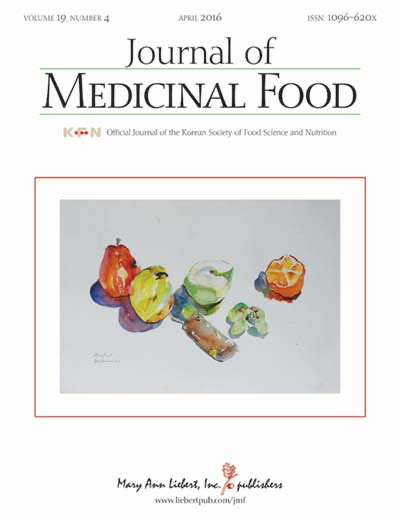
2022 Journal of Medicinal Food
Raspberry consumption can help to reduce blood glucose levels and stabilize the blood lipid profile due to its bioactive compounds.
Systematic Review Blood Sugar Cholesterol Raspberry Leaf Type 2 Diabetes
Raspberry (Rubus idaeus L.), a Promising Alternative in the Treatment of Hyperglycemia and Dyslipidemias
Piña-Contreras N, Martínez-Moreno AG, Ramírez-Anaya JDP, Espinoza-Gallardo AC, Valdés EHM
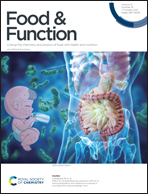
2021 Food & Function
Almond intake significantly changed the concentrations of triglycerides, total cholesterol and low-density lipoproteins
Systematic Review Almond Cholesterol Triglyceride
The effect of almond intake on lipid profile: a systematic review and meta-analysis of randomized controlled trials
Asbaghi O, Moodi V, Hadi A, Eslampour E, Shirinbakhshmasoleh M, Ghaedi E, et al.
Review Articles
Review articles summarise and critically evaluate the current state of research on a specific topic or field by synthesising multiple primary research studies.

Arctium lappa Lam. and Its Related Lignans Improve Hyperglycemia and Dyslipidemia in Diabetic Rodent Models: A Systematic Review and Meta-Analysis
2022 Nov 11 Nutraceuticals Watanabe S, Yamabe S, Shimada M
Animal Study Systematic Review Meta-AnalysisA. lappa (burdock root) benefits diabetic rodents by reducing blood glucose and improving lipids, but human effects are uncertain

Effects and safety of Chinese herbal medicine on inflammatory biomarkers in cardiovascular diseases: A systematic review and meta-analysis of randomized controlled trials
2022 Aug 16 Frontiers in Cardiovascular Medicine Li M, Zhou IW, Trevillyan J, Hearps AC, Zhang AL, Jaworowski A
Systematic Review Meta-Analysis Cardiovascular DiseaseCan't find journal cover —Adrian Y 1 Mar 2023
Cannot import metadata without author field filled —Adrian Y 1 Mar 2023

Hypolipidemic effect of Sesame Seed Oil: A Review
2022 Apr 30 Pakistan BioMedical Journal Arshad M, Ashfaq M, Rizwan B, Zanib R, Fatima A, Pervaiz R, et al.
Sesame seed oil and its derivatives have shown to be highly effective in managing hyperlipidemia and dyslipidemia due to their lipid ameliorating and anti-oxidative effects.
Experimental Study Review Article Cholesterol Sesame Oil Hypercholesterolemia
Raspberry (Rubus idaeus L.), a Promising Alternative in the Treatment of Hyperglycemia and Dyslipidemias
2022 Feb 01 Journal of Medicinal Food Piña-Contreras N, Martínez-Moreno AG, Ramírez-Anaya JDP, Espinoza-Gallardo AC, Valdés EHM
Systematic Review Blood Sugar Cholesterol Type 2 Diabetes Raspberry LeafRaspberry consumption can help to reduce blood glucose levels and stabilize the blood lipid profile due to its bioactive compounds.

Citrus Extract as a Perspective for the Control of Dyslipidemia: A Systematic Review With Meta-Analysis From Animal Models to Human Studies
2022 Feb 14 Frontiers in Pharmacology Carvalho BMR, Nascimento LC, Nascimento JC, Gonçalves VSS, Ziegelmann PK, Tavares DS, et al.
Meta-Analysis Systematic Review Cholesterol Dyslipidemia LemonCertain species of citrus extracts effectively control dyslipidemia, reducing total cholesterol, LDL, and triglycerides while increasing HDL, primarily due to their rich antioxidant composition.
Clinical Trials
Clinical trials are research studies that involve people and are conducted to evaluate the safety and efficacy of new treatments or interventions, such as drugs, medical devices, or behavioural therapies.
Study Protocols
Published study protocols are detailed plans that outline the objectives, methodology, statistical analyses, and organisation of a research study that have been made publicly available for others to review and use as a reference.
Presentation Slides

Animal Study
A. lappa (burdock root) benefits diabetic rodents by reducing blood glucose and improving lipids, but human effects are uncertain
Watanabe S, Yamabe S, Shimada M

Network Pharmacology
Two varieties of chrysanthemum have similar therapeutic effects but operate through distinct mechanisms, revealing potential for precise applications in both traditional and modern medicine.
Wang Y, Li Y, Guo W, Yang X, Qu J, Gao M, Chen S, Dong J, Li Q, Wang T

Meta-Analysis
Certain species of citrus extracts effectively control dyslipidemia, reducing total cholesterol, LDL, and triglycerides while increasing HDL, primarily due to their rich antioxidant composition.
Carvalho BMR, Nascimento LC, Nascimento JC, Gonçalves VSS, Ziegelmann PK, Tavares DS, Guimarães AG

Systematic Review
Raspberry consumption can help to reduce blood glucose levels and stabilize the blood lipid profile due to its bioactive compounds.
Piña-Contreras N, Martínez-Moreno AG, Ramírez-Anaya JDP, Espinoza-Gallardo AC, Valdés EHM

Systematic Review
Almond intake significantly changed the concentrations of triglycerides, total cholesterol and low-density lipoproteins
Asbaghi O, Moodi V, Hadi A, Eslampour E, Shirinbakhshmasoleh M, Ghaedi E, Miraghajani M

Systematic Review
Of the 7 clinical trials included, five evaluating individuals with hypertension observed a significant reduction in systolic and/or diastolic blood pressure. The two articles that evaluated individuals with dyslipidemia showed improvement in lipid profile.
Carolina Alves Cardoso, Gláucia Maria Moraes de Oliveira, Luciana de Almeida Vittori Gouveia, Annie Seixas Bello Moreira & Glorimar Rosa
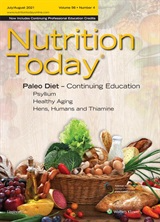
Review Article
Fenugreek can be beneficial as an adjunct in controlling high blood glucose and lipid levels in people with diabetes.
Singletary, Keith W.

Systematic Review
The studies assessed showed that sesame could have a significant effect on oxidative stress and the antioxidant defense system, being considered a food with an important antioxidant function in the different populations studied.
Gouveia Lde A, Cardoso CA, de Oliveira GM, Rosa G, Moreira AS.
Executive Summary
Write an executive summary in the form of a blog article on the topic of "Research into Chinese medicine treatment for Dyslipidemia" summarising the research below and using language that can be easily understood by patients and avoiding medical jargon using a professional and caring tone of voice.
Write an executive summary in the form of a blog article on the topic of "Researched Chinese medicine treatments for Dyslipidemia" summarising the research below in an objective and easy to understand way, and using language that can be easily understood by patients. Group the article into Chinese medicine treatments first, followed by nutrition and other treatments. Avoid using medical jargon and use a professional and caring tone of voice.
Write me a concise but easy to understand executive summary on the topic of "Chinese medicine treatments for Dyslipidemia" based on the following research that I will give you. Your summary should be 2 paragraphs long in Australian English spelling and include references to the studies.
A Animal Study published in 2022 in the journal Nutraceuticals found that A. lappa (burdock root) benefits diabetic rodents by reducing blood glucose and improving lipids, but human effects are uncertain This study analyzed the effects of A. lappa (burdock root) and related compounds on diabetic rodents. Results showed that these substances can lower blood glucose levels and improve triglyceride and cholesterol levels in these animals, depending on factors like the type of diabetes model used. However, it's essential to remember that these findings are based on animal studies, and we need more research to know if they apply to humans and prolonged use may have adverse effects.
A Network Pharmacology published in 2022 in the journal International Journal of Molecular Sciences found that Two varieties of chrysanthemum have similar therapeutic effects but operate through distinct mechanisms, revealing potential for precise applications in both traditional and modern medicine. The study combined network pharmacology, molecular pharmacology, and metabolomics to clarify differences between two herbs, CMF and CIF. An initial analysis was carried out via HPLC-Q-TOF-MS which revealed distinct flavonoid constituents between CMF and CIF. These findings led researchers to make predictions about the possible biological processes responsible for the therapeutic effects of these herbs on LFHSH, including their influence on inflammatory response and fatty acid production. Through a series of ELISA, molecular docking, Western blot, and metabolomics techniques, the research identified similar influences of CMF and CIF on blood pressure and resistance to tissue, organ and functional damage as well as dyslipidemia. Despite the similar outcomes, there was variation in their mechanism of action. Namely, these herbs uniquely influenced inflammatory response, various signaling pathways, lipid anabolism, the renin-angiotensin system, and metabolic abnormalities. Differing effects were believed to be due to each herb's unique regulatory capabilities which, despite the end effect similarities, offer unique pathways for effective medical application.
A Meta-Analysis published in 2022 in the journal Frontiers in Pharmacology found that Certain species of citrus extracts effectively control dyslipidemia, reducing total cholesterol, LDL, and triglycerides while increasing HDL, primarily due to their rich antioxidant composition. The methodology involved systematic surveys of research databases including PubMed, Scopus, LILACS, and SciELO. The team utilised several descriptors like dyslipidemias, hypercholesterolemia, hyperlipidemias, lipoproteins, and cholesterol. From the initial findings, 958 articles were identified and after critical assessment, 26 studies were selected that showed the efficacy of certain species extracts in controlling dyslipidemia. Of these, 25 studies were incorporated into a meta-analysis conducted using R software. Assessment of potential bias was carried out as per Cochrane methodology and ARRIVE guidelines for preclinical and clinical studies respectively. From the total number of collected studies, the results consistently showed the effectiveness of these species extracts on dyslipidemia, reducing total cholesterol, LDL, and triglycerides while elevating HDL levels. The active composition of these extracts, particularly rich in flavonoids which are powerful antioxidants, was identified as the crucial factor. The bias risk across all studies was found to be critically low to moderate. Nevertheless, the high heterogeneity values noticed across the studies suggest some inconsistency in the evidence provided.
A Systematic Review published in 2022 in the journal Journal of Medicinal Food found that Raspberry consumption can help to reduce blood glucose levels and stabilize the blood lipid profile due to its bioactive compounds. The researchers conducted a systematic review of original articles and enzyme inhibition studies involving animal models and human clinical studies, extracting data from the PubMed, Web of Science, and Science Direct databases. The mechanisms of action investigated focused on how consumption of raspberry in different forms (like frozen, lyophilized, infusion of leaves, seed oil) and compounds extracted from it could inhibit enzymes and increase insulin production and sensitivity, thereby affecting blood glucose levels. The findings revealed that raspberry consumption, regardless of its form, consistently aided in reducing blood glucose levels. The mechanisms involved included inhibition of specific enzymes and enhancement of insulin production and sensitivity. On the other hand, the effects on the lipid profile were varied. While a decrease in cholesterol and low-density lipoprotein levels was recorded, the impact on triglyceride levels was less consistent and manifested mainly as stabilization rather than reduction. However, an increase in levels of beneficial high-density lipoproteins was reported, suggesting an overall beneficial effect on lipid profile.
A Systematic Review published in 2021 in the journal Food & Function found that Almond intake significantly changed the concentrations of triglycerides, total cholesterol and low-density lipoproteins To estimate the overall effect of almond intake, we employed the random-effect model. In total, 27 studies with 36 effect sizes were included in our analysis (1154 cases and 904 control subjects). The meta-analysis revealed that almond intake significantly changed the concentrations of triglycerides, total cholesterol, and low-density lipoproteins; however it did not have a significant effect on high-density lipoprotein levels. Meta-regression analysis indicated a linear relationship between the dose of almond and change in TG. This meta-analysis concludes that almond intake can significantly reduce lipid parameters.
A Systematic Review published in 2017 in the journal Critical Reviews in Food Science and Nutrition found that Of the 7 clinical trials included, five evaluating individuals with hypertension observed a significant reduction in systolic and/or diastolic blood pressure. The two articles that evaluated individuals with dyslipidemia showed improvement in lipid profile. The mechanisms of action are still being studied. Regarding the bias risk analysis, clinical trials included showed few descriptions of the methods applied. There are few studies about sesame ingestion, and it was observed high risk for bias in the selected studies. More standardized methods with attention to the design of studies are needed to improve the level of the evidence.
A Review Article published in 2017 in the journal Nutrition Today found that Fenugreek can be beneficial as an adjunct in controlling high blood glucose and lipid levels in people with diabetes. Taken together, the outcomes from human investigations suggest that fenugreek can be beneficial as an adjunct in controlling high blood glucose and lipid levels in people with diabetes. However, larger, adequately powered, randomized, placebo-controlled, double-blind trials examining multiple measures of carbohydrate and lipid metabolism and insulin homeostasis are needed.
A Systematic Review published in 2016 in the journal Journal of Medicinal Food found that The studies assessed showed that sesame could have a significant effect on oxidative stress and the antioxidant defense system, being considered a food with an important antioxidant function in the different populations studied. In conclusion, despite the limitations and biases of this systematic review, the studies assessed showed that sesame could have a significant effect on oxidative stress and the antioxidant defense system, being considered a food with an important antioxidant function in the different populations studied (individuals with dyslipidemia, diabetes, and hypertension), as well as in its different presentations (oil, seed flour, and capsule). However, better-controlled studies still lack to assess the positive effects on different populations. There are few clinical trials assessing the effect of sesame on oxidative stress. The studies included in this review, mainly those with sesame oil and black sesame meal capsules administered to hypertensive and prehypertensive populations, respectively, showed an increase in enzymatic (SOD, GSH, GPx, and CAT) and nonenzymatic antioxidants (vitamin C, vitamin E, and beta-carotene), as well as a reduction in oxidative stress markers (TBARS and MDA). Although several studies have reported that the exact mechanisms of oxidative stress reduction remain to be fully explained, this review showed that sesame can have a significant positive impact on the health of different popula- tions.
Moderation Tools
Topic
Sign In
Users not signed in are limited to viewing the 5 most recent items of content.

Can't find journal cover —Adrian Y 1 Mar 2023
Cannot import metadata without author field filled —Adrian Y 1 Mar 2023